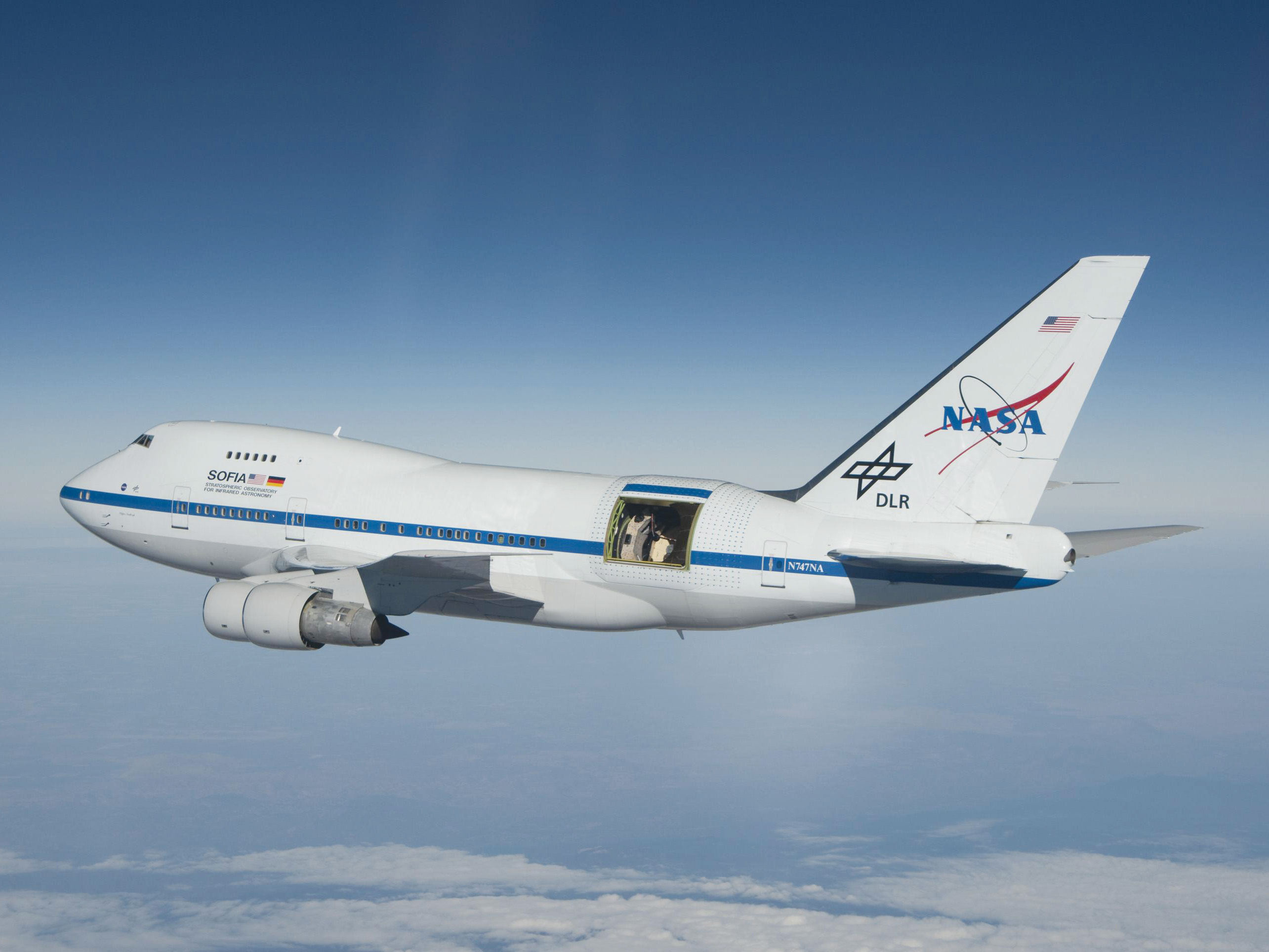WASHINGTON — NASA officials say they believe the latest effort to shut down an airborne observatory is more likely to be successful because of the endorsement of doing so by last year’s decadal survey.
NASA’s fiscal year 2023 budget proposal called for shutting down the Stratospheric Observatory for Infrared Astronomy (SOFIA), a Boeing 747 with a 2.7-meter infrared telescope mounted in its fuselage. “SOFIA’s annual operations budget is the second-most expensive operating mission in Astrophysics, yet the science productivity of the mission is not commensurate with other large science missions,” the agency stated in its budget proposal.
This was not the first time NASA proposed terminating SOFIA. The agency’s budget proposals in fiscal years 2021 and 2022 also recommended shutting down SOFIA for a similar rationale, as did the agency’s fiscal year 2015 budget request. All three times Congress restored funding for SOFIA.
“What’s different this year is that the decadal survey has recommended ending the SOFIA science mission at the current mission extension” at the end of September, said Paul Hertz, director of NASA’s astrophysics advisory committee, during a NASA astrophysics town hall meeting May 3 that featured several questions about the planned SOFIA cancellation. Congress, he added, also endorsed all of the recommendations of the decadal survey, which included ending SOFIA, in the report accompanying the fiscal year 2022 omnibus spending bill.
Another difference, he said, was that NASA was not zeroing out SOFIA in 2023 but instead is seeking $10 million as a “closeout budget” for the observatory. He didn’t elaborate on how that funding would be spent.
Hertz emphasized the agency’s decision was based not only SOFIA’s science alone but instead on the value of that science relative to the costs. NASA has spent about $85 million a year on SOFIA, more than any operating astrophysics mission other than the Hubble Space Telescope. “That funding comes out of a limited NASA astrophysics budget, and this year is an example where it is displacing other astrophysics in our budget,” he said.
NASA and Congress have not yet approved an operations plan for fiscal year 2022, so he did not go into details about how Congress’s decision to restore SOFIA, without increasing the overall astrophysics budget, affected other programs.
However, both the fiscal year 2022 spending bill and projections for future years included in the 2023 budget proposal that are lower than what NASA planned for a year ago will affect several astrophysics programs. The Compton Spectrometer and Imager (COSI), selected for development by NASA in October 2021 as a small Explorer mission for launch in 2025, will “ramp up more slowly,” Hertz said. A medium-class Explorer mission that NASA will select later this year will also be stretched out.
NASA will also delay an announcement of opportunity (AO) for a larger probe-class mission. The release of the AO, previously scheduled for January 2023, will be pushed back by 6 to 12 months, with a formal announcement of the revised schedule “very soon,” he said.
Another factor that adds weight to NASA’s plans to shut down SOFIA is the agreement with its German partner on the program, the DLR space agency, to end SOFIA operations by Sept. 30. In previous years, NASA and DLR had not announced similar arrangements.
That agreement was criticized in a May 3 statement by Deutsche SOFIA Institut (DSI), the German organization that handles operations of Germany’s share of SOFIA. DSI “distances itself from the justification for this decision,” complaining, as SOFIA’s American backers have previously said, that the decadal survey based its decision on old information and did not consider improvements intended to increase SOFIA’s efficiency.
Alfred Krabbe, head of DSI, said in the statement that he hopes Congress restores funding for SOFIA for at least one more year, adding that the James Webb Space Telescope cannot replace SOFIA since SOFIA operates at longer infrared wavelengths than what JWST can observe. Congress, he noted, has supported SOFIA in the past.
Congress has yet to weigh in publicly on the proposed termination of SOFIA. The program did not come up during a May 3 hearing on NASA’s budget proposal by a Senate appropriations subcommittee. “The NASA budget request is just that, a request,” Hertz said. “Congress will make the ultimate decision on what NASA projects receive funding.”
